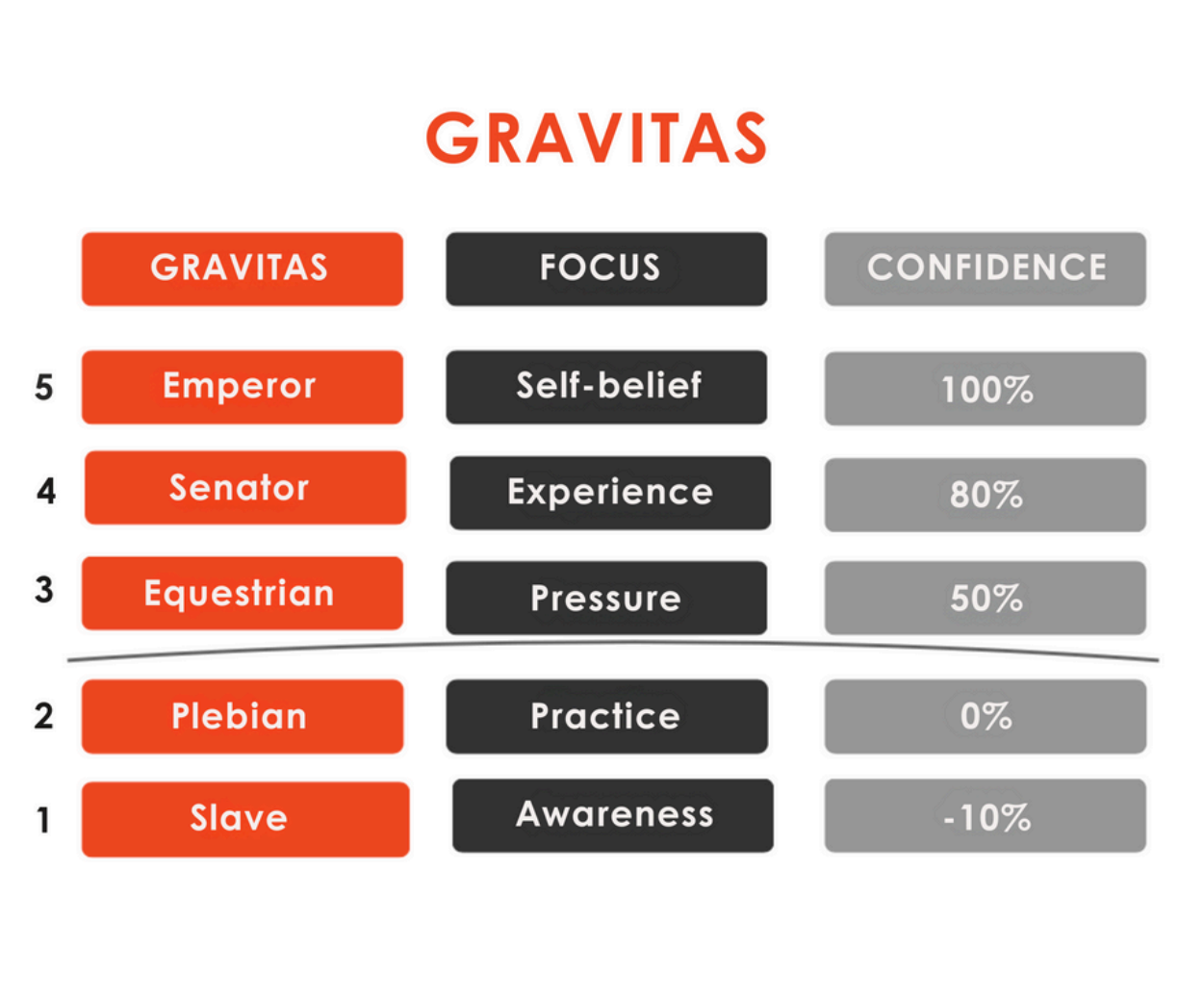
Lead With Gravitas
In-House Corporate Micro-Events with Dr Louise Mahler
Speaking | Seminars | Workshops
Is your leadership team struggling with confidence, presence, and influence?
You’re not alone. Many senior executives say things like:
“I go blank under pressure.”
“I waffle and lose the room.”
“I can’t get my voice heard in meetings.”
“I’ve lost confidence and influence.”
These challenges don’t just affect individuals—they shape trust, performance, and results across entire organisations.
Why It Matters?
Today’s leaders face relentless pressure: hybrid workplaces, disengaged teams, information overload, and eroding public trust. With around 75% of people fearing public speaking, the ability to communicate with clarity and authority isn’t a “nice to have”—it’s essential for credibility and results.
We are in a crisis of leadership. The question is: how will your leaders rise to the challenge?
-
In Roman society slaves were not seen or heard. They moved between the corridors between the walls of places like the Colosseum and did not walk into any of the rooms. They fed the fires and were deliberately hiding. They were not asked to speak and had no eye contact or gestures. If they were prompted to interact their engagement was muffled, complicated and indistinct. In today’s world they would be complaining that, "I never get asked to present." They miss out on opportunities and believe that their work should speaks for itself. After all, "Why should I get up and speak?"
-
Plebians needed few skills. The plebeian might have worked a fruit shop or provided goods. As a communicator they were part of a chorus. A chorus was a group of participants in the audience who provided ‘acclamations'. They responded to the speaker with claps, hums or short phrases. They had no individual voice. His gestures were more limited than the the Senator, his voice needed less volume and his eyes may have been out of control.
In today’s world plebeians are those in the audience. They would love to have the opportunity to speak but just haven’t learnt the skills.
-
Equestrians were bankers, miners, exporters and people who built roads.
They were very similar to aristocrats or nobles. They had control of the government and the majority of power in Rome. They could ride horses, because they needed them for transport, it meant that they had more height and therefore visibility and more status.
However as plebeians were often fighting them, they were often trying to influence downwards as well as to those who had greater authority. They struggled to get their message to feed up to the Senator and Emperor as they were being fought from below. They were middle management.
The Equestrian had a strong voice, but it may have tended to be aggressive and incongruent with its message and eye contact. His gestures and structure of his presentation were simple and repetitive. He needed pressure applied to his skills to elevate his gravitas.
-
The Senator had jurisdiction over religious, judicial, tax, war, peace, military, foreign policy. They controlled all areas, of public life. They made their message really clear, and listened to their audience. The Senators was today’s executives team.
They didn’t have ultimate power or the power that they would have liked. They were always having to battle with the patricians and it was a constant struggle and they sought political equality.
They might have the title, but they didn’t have the presence and charisma of the Emperor.
-
Emperors had total authority. They gestured boldly with congruent and well-understood gestures that became part of his set of patterns. He engaged with the audience and gave them direct eye contact. His presentation was structured and clear, moving the audience with pathos and showing immense knowledge.
The emperor’s voice carried and was strong. He knew how to reach his people and had total authority. He had strong self-belief, and people listened. They felt mastery an,d as a result, gained trust. They focused on keeping the right senators around them to continue creating influence and leading with conviction.
What Makes the Difference?
Dr Louise Mahler’s micro-events equip leaders with the missing ingredients of leadership:
Body: Mastering presence through posture, gestures, and emotional alignment.
Voice: Using tone, pitch, and flow for authority and authenticity.
Structure: Proven frameworks to deliver with impact—whether given seconds or hours to prepare.
When these three align, leaders stop “speaking into the noise” and start being heard, trusted, and followed.

Micro events are not ideal for you if your leaders:
• Are not open to change
• Don’t want to get involved
• Are not prepared for feedback
What Your Leaders Will Gain?
Confidence to influence in high-stakes situations
Techniques for handling pressure—boardrooms, media, town halls, or crises
Awareness of body language and voice patterns that either build or break trust
Strategies to manage performance anxiety and think clearly under fire
Tools to create engaging stories and communicate with originality
Micro events are ideal for you if:
• You have highly motivated C-suite Executives and Leaders who are prepared to invest in communication and are looking for their edge
• You want to bring your team together in smaller, more intimate non-conference experiences
• You want Louise to spend more time and target specific challenges with your team
Clients Testimonials

Presence & Influence
Be heard in hostile environments




















